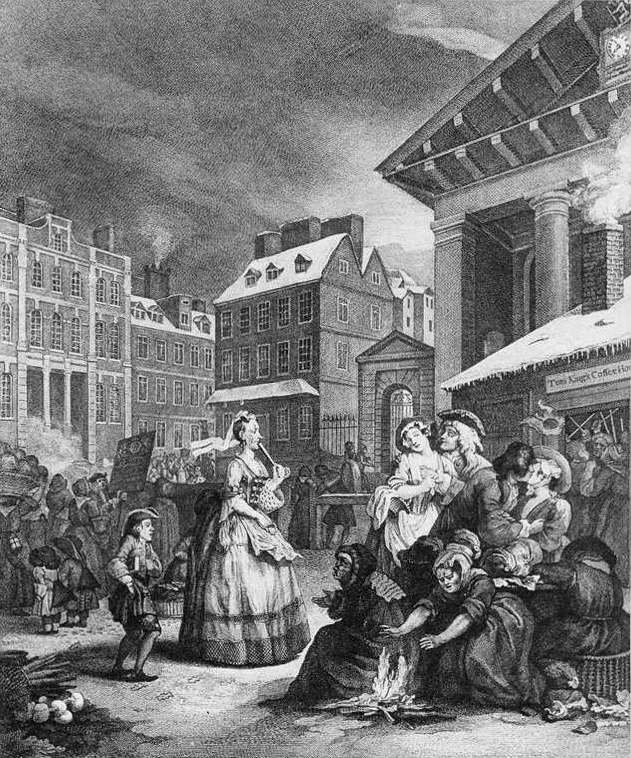
"What rake is ignorant of King's Coffee House?"
Those are the words of author and dramatist Henry Fielding, from his play The Covent Garden Tragedy. Brothels were common in 18th century London — but this one was a bit different.
Tom and Moll King began innocently enough; the couple sold nuts — slightly prophetic? — at Covent Garden Market. The money they earned was enough to rent a small house in the Piazza. This house became King's Coffee House, selling coffee, tea and chocolate to the locals. An innocent enough genesis.
Then the coffee house began selling booze. It was open in the wee hours of the morning when market trading began — something that continues to this day, albeit in a different location — so there was an opportunity to attract late night revellers with something a little stronger than coffee. Some of these late night revellers are still well known today: Alexander Pope, William Hogarth and the above quoted Henry Fielding. With the rakes and booze in tow, the jump to becoming a brothel seemed logical. Almost.
So what differentiated the King's College — as it was affectionately known — from a traditional brothel? Tom and Moll King had worked out a loophole in the system. The Coffee House only staged the first act between prostitute and customer. The meeting, instead of the... you know... the behind closed doors bit.
No beds in the building meant that charges couldn't be brought against the institution as a brothel. That's actually a small fib there was one bed, the Kings' own . It was hidden upstairs in a loft room with a ladder which they pulled up behind them, to make sure none of their clientele could get in.
Instead of any illegal acts taking place in the coffee house, a servant would lead prostitute and customer to another nearby brothel, allowing them to enact any illegality somewhere else. Business was booming — it was such an infamous spot that the Coffee House attracted attention from many of the period's reformers, who attempted to shut it down.
They failed, but Tom King's inability to stop himself from getting a little too rowdy alongside his customers finished him off. He died in 1737 from an illness exacerbated by drink. Moll then ran the Coffee House alone until she died 10 years later, leaving behind a vast fortune. It seems sex (sort of) sells.



Комментариев нет:
Отправить комментарий